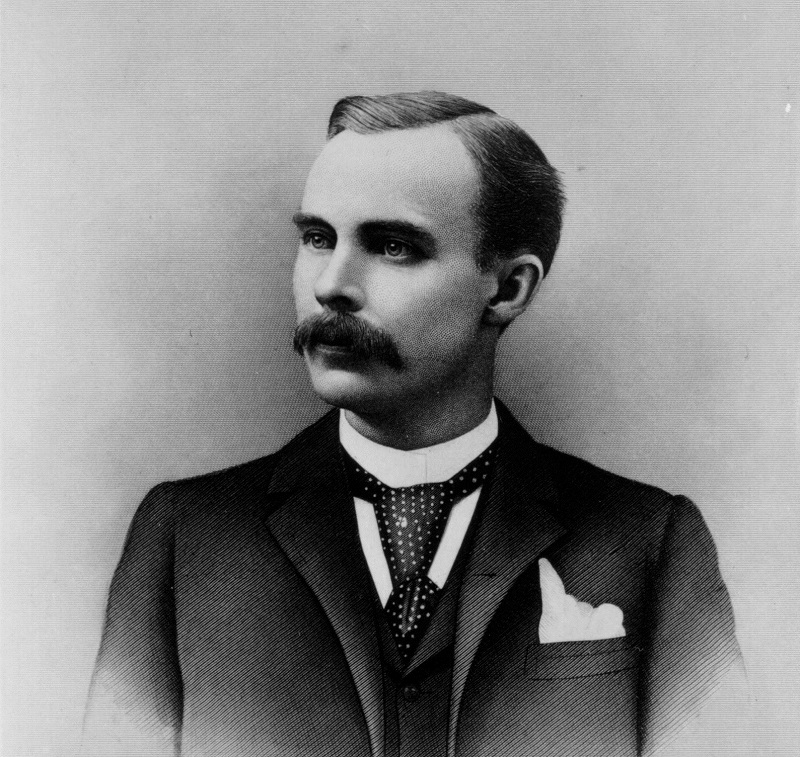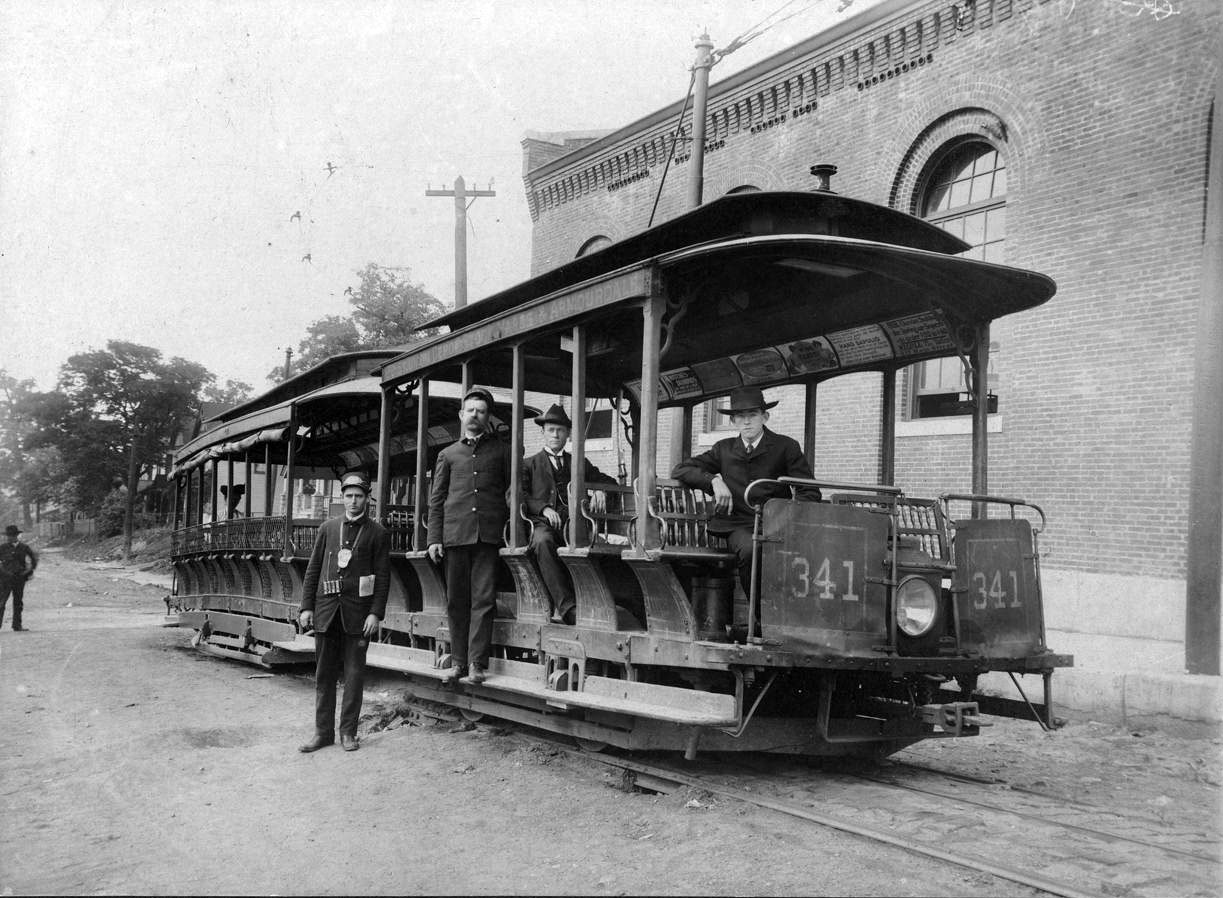Decline of the Incline
October 13, 1913: The last operating cable car in Kansas City completed its final trip along 12th Street, ending thirty years of cable car dominance in the city’s public transportation.
In the late 1870s, Kansas City hosted a rapidly growing population and a vibrant economy based on the cattle trade, but maneuvering through town remained a problem. Horse or mule-drawn car rides over hilly, unpaved streets entailed an unsightly and decidedly putrid experience.

When Robert Gillham, a 24-year-old engineer from New York, arrived in Kansas City in 1878, he wanted to reform its transportation system. He persuaded the business leadership to build a cable car system that stretched along 9th Street from the Union Depot railway terminal, located in the West Bottoms, up the steep incline to Quality Hill.
Kansas City became just the third city in the United States to have cable cars. Outdoing himself just three years later, Gillham achieved an engineering feat by drilling a cable-car tunnel along 8th Street directly through a steep bluff to reach downtown Kansas City. With continuous expansion, the system remained the third largest in the country behind San Francisco and Chicago.

In the early twentieth century, electric streetcars proved to be more energy efficient, required less maintenance, and were easier to construct than cable cars. Cable cars gradually disappeared from the landscape of Kansas City and most of the United States. Despite the advantages of electric streetcars, another innovation, the automobile, gradually replaced them. By the 1920s Kansas City embraced automobiles as the favorite method of transportation. Expansions of roadways for the Country Club Plaza and southward suburban development under the leadership of J.C. Nichols strongly favored the use of private vehicles or buses. Accordingly, the last electric streetcars wound through Kansas City in the 1950s, and today greater Kansas City possesses more freeway miles per capita than any other metropolitan area in America.
Read full biographical sketches about key developers in Kansas City, prepared by the Missouri Valley Special Collections:
Read about the history of Kansas City buildings relating to the cable cars, prepared by the Missouri Valley Special Collections:
- Union Depot Profile
- Vaughan Diamond Building, The Junction Profile; located on one of the busiest streets in Kansas City, thanks in part to the cable cars running along 9th Street
View images of streetcars from the Missouri Valley Special Collections:
- 9th Street Cable Car
- 9th Street Incline from West Bottoms to Quality Hill
- Cable Car Employees
- Dodson Line 65 Electric Streetcar
- Rand, McNally & Co.'s Map of the Main Portion of Kansas City; shows Kansas City’s public transportation networks, 1890
- Cable Car winding through bluffs
Check out the following books about streetcars in Kansas City:
- A Splendid Ride: The Streetcars of Kansas City, 1870-1957, by Monroe Dodd; an excellent history of cable cars and electric streetcars in Kansas City with many photographs and maps.
- Kansas City Streetcars Remembered, by Henry Elsner; primarily a photographic history.
- The Cable Car in America: A New Treatise upon Cable or Rope Traction as Applied to the Working of Street and Other Railways, by George W. Hilton; describes Kansas City’s cable cars with photographs, pp. 255-282.
- Heartland Traction: The Interurban Lines of Kansas City, by Edward A. Conrad; details the electric trolleys that connected Kansas City to nearby cities.
Continue your own research on the history of public transportation in Kansas City using the following archival resources contained in the Missouri Valley Special Collections:
- Vertical File: Street Railways--Cable Car
- Vertical File: Kansas City--Mass Transit
- Vertical File: Kansas City Area Transportation Authority
- Electric Trolley, Microfilm: Native Sons Scrapbooks, Roll 59
- Vertical File: Robert Gillham
References:
Rick Montgomery & Shirl Kasper, Kansas City: An American Story (Kansas City, MO: Kansas City Star Books, 1999), 10-11, 28-36, 158.
Robert Livingston Nicholson, "Cable Cars in Kansas City," Manuscript, Missouri Valley Special Collections, 1969.
Monroe Dodd, A Splendid Ride: The Streetcars of Kansas City, 1870-1957 (Kansas City, MO: Kansas City Star Books, 2002).
Janice Lee, "Biography of Robert Gillham, Rapid Transit Pioneer," Missouri Valley Special Collections, Kansas City Public Library, Kansas City, Missouri.
William S. Worley, J.C. Nichols and the Shaping of Kansas City: Innovation in Planned Residential Communities (Columbia, MO: University of Missouri Press, 1990), 248.


